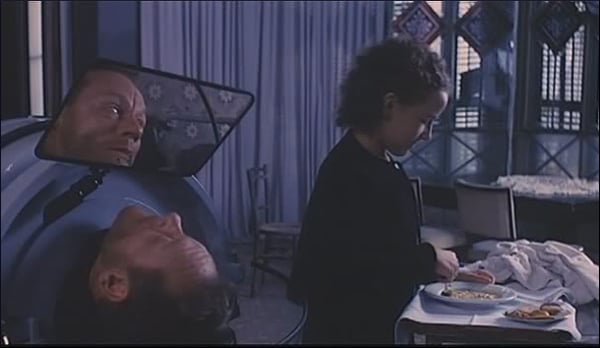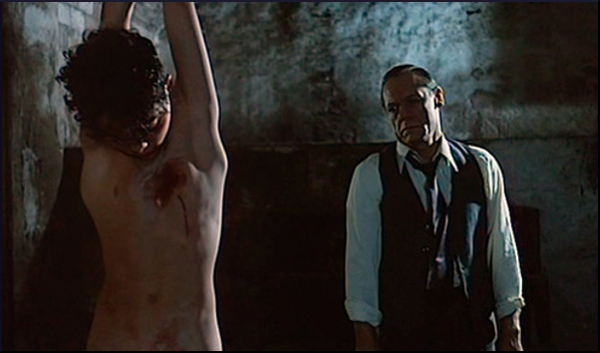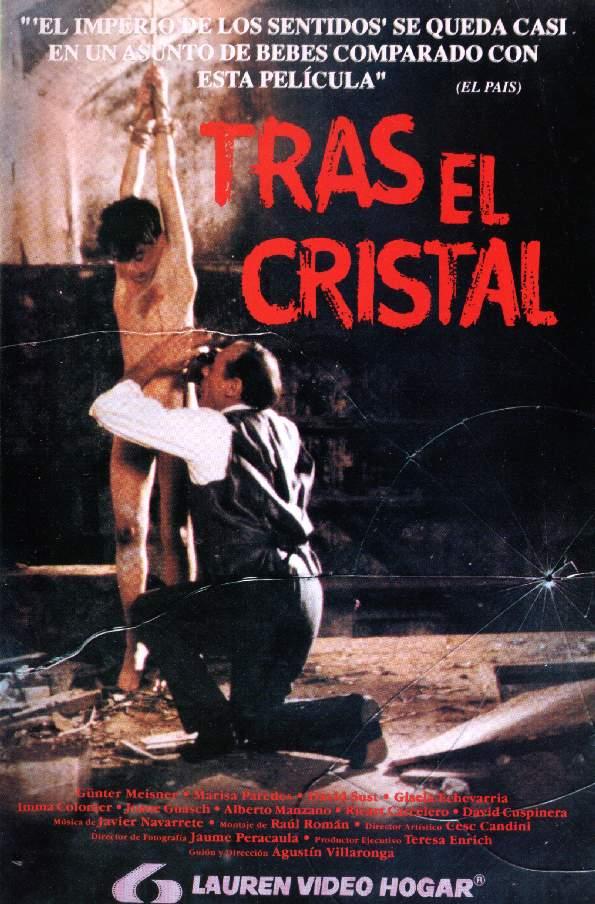In a Spanish villa, Griselda (Marisa Paredes) lives her life caring for her husband Klaus (Günter Meisner). He is paralyzed below the neck and lives inside an iron lung since his failed suicide attempt. Klaus is an ex-Nazi doctor who continued murdering children even after the war ended, while Griselda, who is extremely cold towards their young daughter Rena, appears to be ignorant of the killings, though she harbors a grudge against Klaus and secretly wants him dead. On day, a young man, named Angelo (newcomer David Sust), knocks on her door looking to apply as a nurse. Although Griselda distrusts him immediately, Klaus insists that he stay, and of course, Angelo is pretty much exactly what he seems, and it’s not long before we discover the extent of his intentions with Klaus.
"This is a bleak, extremely disturbing, no-holds-barred movie."
This is a bleak, extremely disturbing, no-holds-barred movie. The plot summary above cannot really convey the depths of depravity it portrays. It is not, however, an exploitation film; one cannot in all fairness call it that. The tone, the frequent monologues and voiceovers (some translations of the characters’ thoughts, others excerpts from Klaus’s wartime journals), as well as the music, all conspire to make this the sickest film famous Swedish director Ingmar Bergman never filmed. Although many acts of torture and vexation occur, the film is not all that graphic. It makes up for that with its atmosphere and cinematography, which is unfortunately rendered too dark in some copies of the film, although the recent Blu Ray release is apparently a huge improvement.

For its sheer bravado alone, Tras el cristal deserves a bigger place in the history of cinema, something it has probably been deprived of because of prejudice against Spanish filmmaking, even within Spain. The so-called “torture porn” genre (obsessed with revenge plots and victims who turn into executors) would not be born for at least twenty more years, and even movie plots involving quadriplegics were still rare. Like most Spanish movies of the 1980s, one of the main objectives behind Tras el cristal is transgression. Spain had lived through a dictatorship for almost forty years, from 1936 to 1975, and like all other forms of communication, cinema had been closely monitored by censors. Spanish director Pedro Almodóvar, with his melodramas that liberally explored sex and other taboo subjects, stands as a symbol of the cultural “ destape ” (uncovering) that marked this period. In a Glass Cage, as it is known in English, could not be more unlike Almodóvar’s jokey movies, however. It is bleak, grim, gritty, and dark, both on its surface and in its substance. None of the main characters – except for the children, who are victims – exhibit any positive traits. Agustí Villaronga, an openly gay director, would go on to make many other more or less successful films, like Moon Child or Black Bread, but this one, his opera prima, is always the one he is most closely associated with. I have not seen a more poignant film dealing with the consequences of child abuse.
"For its sheer bravado alone, Tras el cristal deserves a bigger place in the history of cinema"
The language spoken throughout is Spanish. The characters are mostly upper class, except for the maid, played by Imma Colommer, a Catalan actress who speaks Spanish in this film. Her character adds some of the few humorous moments, such as when she’s used as a guinea pig by Griselda to determine whether Angelo has any nursing skills at all. Günter Meissner, who plays Klaus, is obviously German, and his lines are dubbed into Spanish by Lluís Homar, himself an accomplished actor.





